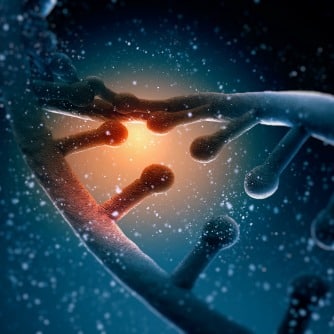Scientists have discovered gene variants in a group of primates that make them resistant to obesity. The study published in the journal Scientific Reports found that when the female primates were fed a high fat diet over a seven-year period, one-third did not become obese. The 36 percent fat diet fed to the group of primates was similar to that of many American diets.
The original goal of the team was to study what impact the high fat diets of primate moms had on their offspring. However, they instead found that there was a genetic link that protected some of the primates against obesity. It has been observed too in humans that a portion of the population appears to be resistant to obesity and researchers were interested to find out if humans have similar gene variations.
Two Genes (APOB & PLA2G4A) Linked To Metabolism
The researchers used unique experimental techniques to identify the genes responsible for metabolism. The goal was to catalog known gene variants, as well as new ones that regulate obesity in not just humans but rhesus macaque monkeys, orangutans, and chimpanzees. They used the animal DNA and searched for gene variants that were present in lean animals that were fed the high-fat diet, but were not present in the obese animals.
The team identified two special genes linked to metabolism found in female primates who were displaying obesity resistance. These genes were called:
- APOB (with two variants)
- PLA2G4A (with one variant)
When both of these genes were found together only in the lean primates, then the link was made. These genes rendered primates extremely resistant to weight gain on high-fat diets.
Maternal Obesity can Change Offspring DNA
The primate study in combination with previous human studies made the researchers speculate that the gene APOB has a higher impact on obesity. The gene PLA2G4A has a different role in metabolism and helps regulate the levels of plasma triglycerides as well as lowering levels of serum triglycerides in the blood.
It is suspected that diet can have an effect on the genetics and health for both moms and their offspring. This is based on the primate study and recent human studies. More startling is that mothers who gain weight may set these genes for the next generation. The biological processes that regulate how the genes APOB and PLA2G4A and their variants have an impact on obesity risk on the next generation of offspring have yet to be determined.
Scientists may have found the genes responsible for the resistance to obesity in humans. For parents who experience obesity, this study is an eye opener. There is a link between high-fat diets and possible genetic changes that may affect future generations. This study will give an impetus for more research to find possible solutions for obesity risks in humans.




